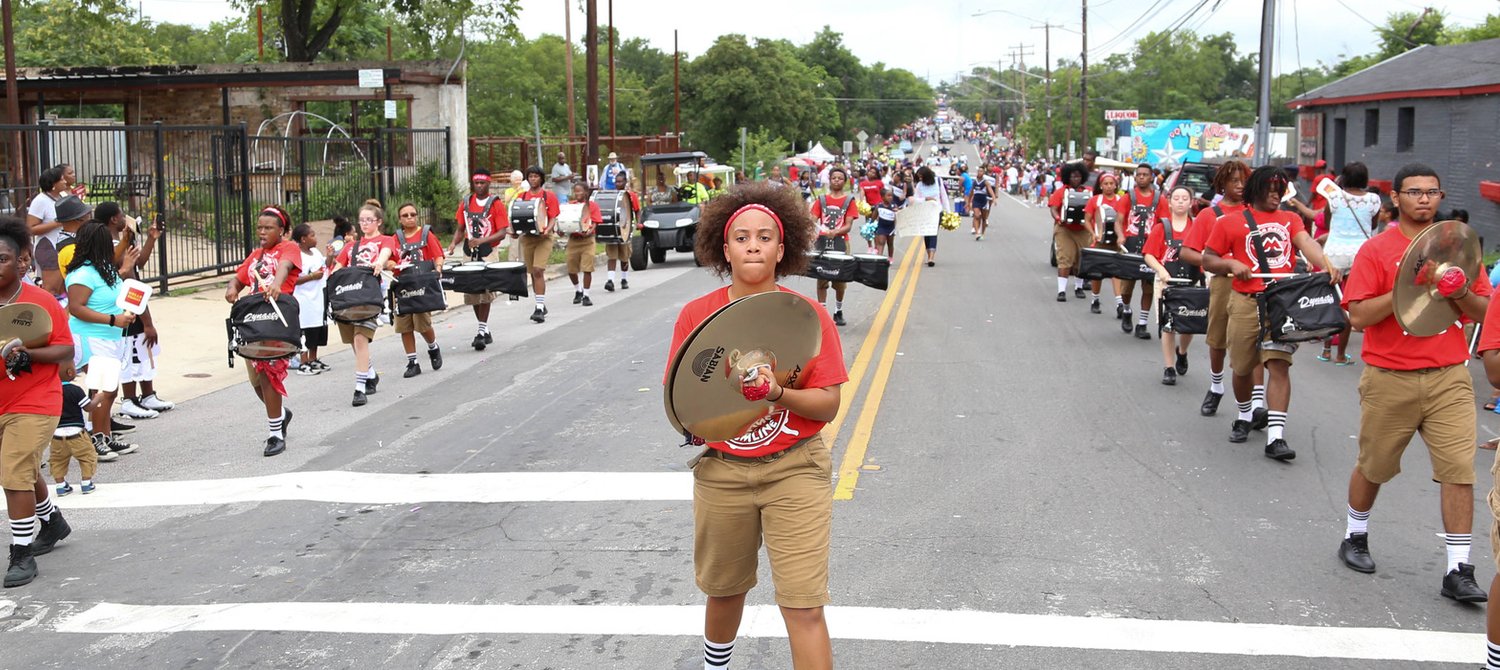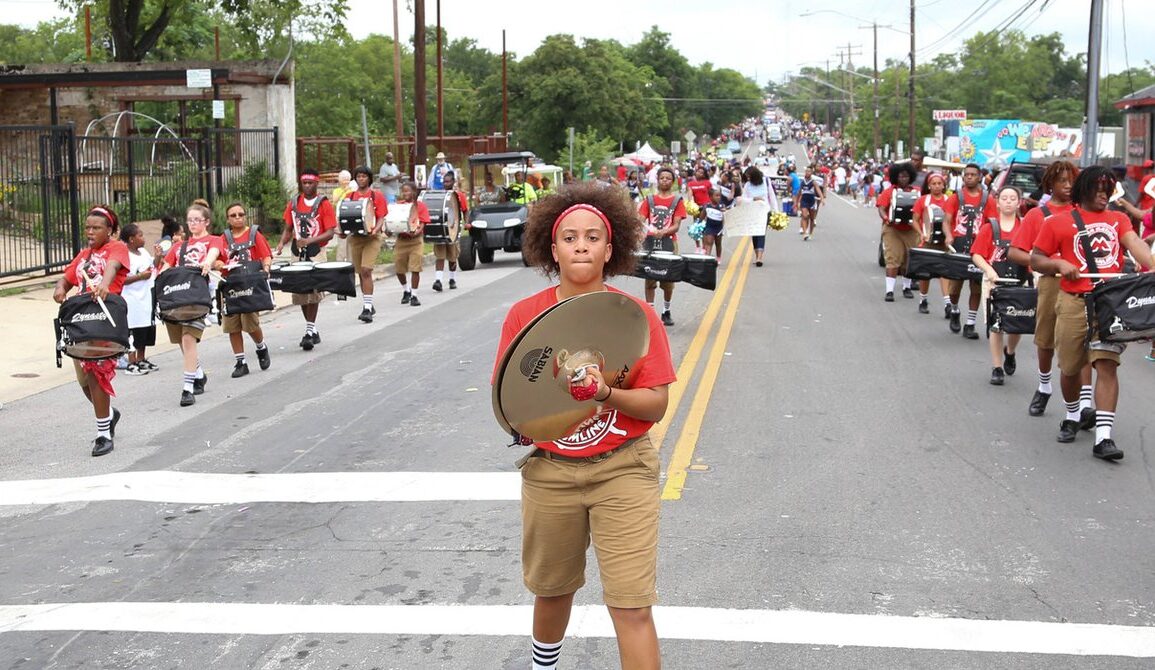
In the poignant lyrics of Perfect Way to Die, a song from the Tony Award-winning musical Hell’s Kitchen, we hear a powerful reflection on racial violence today: “But it rained fire in the city that day, they say. A river of blood in the streets. No love in the streets. And then came silence in the city that day, they say. Just another one gone. And they tell her, move on.”
These words echo the reality many black mothers fear in modern-day America.
Juneteenth, celebrated in the US on June 19, marks a pivotal day in American history. It commemorates the day in 1865, when Union soldiers arrived in Galveston, Texas, to announce the end of the civil war and the emancipation of enslaved African Americans. This date symbolizes the end of a brutal chapter in American history, yet it also serves as a reminder that the struggle for racial equality is far from over.
Its legacy is twofold: first, it celebrates freedom and African American culture, fostering community and pride. Second, it serves as a reminder of ongoing struggles for racial equality, highlighting disparities in education, wealth, and criminal justice. In modern America, Juneteenth encourages reflection on progress made and challenges remaining, urging continued efforts towards true equality and justice for all. This fight continues against the backdrop of systemic racism and violence against people of color.
The significance of Juneteenth has gained renewed attention in recent years, especially following high-profile incidents of racial injustice that have shocked the nation, and the whole world. The tragic deaths of George Floyd, Breonna Taylor, and Ahmaud Arbery in 2020 highlighted the persistent and deep-rooted racism within American society. These events, along with the widespread protests they ignited, underscored the urgent need for systemic change and brought renewed focus on the meaning and importance of Juneteenth.
Crimes Against People of Color
One of the most harrowing examples of racial violence in modern America is the case of George Floyd, an African American man brutally murdered by a Minneapolis police officer on May 25, 2020. Former officer Derek Chauvin kneeled on Floyd’s neck for over nine minutes despite Floyd’s desperate pleas that he could not breathe. This horrific incident, captured on camera, sparked a wave of protests across the US and around the world, calling for an end to police brutality and systemic racism. The public outcry led to Chauvin’s conviction for murder and manslaughter, marking a rare instance of accountability in cases involving police violence against Black individuals.
Another stark example is the shooting of Breonna Taylor, a 26-year-old African American woman killed by police officers in her own home in Louisville, Kentucky, on March 13, 2020. The officers executed a no-knock warrant and entered Taylor’s apartment, searching for a suspect already in custody. Taylor, an emergency medical technician, was shot multiple times as she lay in bed, where she was sleeping. The officers involved faced no charges related to her death, leading to widespread outrage and protests demanding justice for Taylor and an end to no-knock warrants, which disproportionately target people of color.
The case of Ahmaud Arbery further illustrates the ongoing racial violence in America. Arbery, a 25-year-old African American man, was jogging in a suburban neighborhood in Brunswick, Georgia, when he was chased down and fatally shot by three white men on Feb. 23, 2020. The men claimed they suspected Arbery of burglary, but evidence showed he was unarmed and had committed no crime. The initial lack of arrests and charges against his assailants sparked a national outcry and highlighted the racial disparities in the US’ criminal justice system.
The Role of the #BlackLivesMatter Movement
These tragic cases exemplify systemic issues that continue to plague the US. Despite significant progress since the abolition of slavery, people of color still face pervasive discrimination and violence. The #BlackLivesMatter movement, founded in 2013 after the acquittal of Trayvon Martin’s killer, has been pivotal in raising awareness about these injustices and advocating for change. The movement has organized protests, influenced policy, and created a platform for marginalized voices, playing a crucial role in the fight for racial equality.
The Long Road Ahead
As we look to the future, it’s crucial to acknowledge the steps already taken towards a more equitable society. In the aftermath of the protests linked to George Floyd’s murder, numerous policy changes and reforms have been implemented to address systemic racism and promote racial equality.
One significant change is the increased scrutiny and reform of police practices. Several states and cities have banned chokeholds and no-knock warrants, measures that were directly implicated in the deaths of Floyd and Taylor. For instance, Louisville, Kentucky, passed “Breonna’s Law,” which prohibits no-knock warrants and requires officers to wear body cameras while executing search warrants.
The George Floyd Justice in Policing Act was introduced in US Congress at the federal level. This comprehensive bill aims to address police misconduct, excessive force, and racial bias in policing. It includes provisions to establish a national registry of police misconduct, ban chokeholds, and end qualified immunity for law enforcement officers.
In education, there has been a push to incorporate more comprehensive and accurate histories of Black Americans and other marginalized groups into school curricula. States like California and Illinois have mandated ethnic studies as part of their high school graduation requirements, ensuring that students learn about the contributions and struggles of diverse communities.
Economic reforms have also been introduced to address racial disparities. The American Rescue Plan Act passed in 2021, included significant funding for initiatives to support minority-owned businesses and address economic inequalities exacerbated by the COVID-19 pandemic. This includes provisions for direct financial support to Black farmers and investments in communities of color.
In addition to policy changes, there has been a notable increase in public and corporate commitments to racial equity. Companies across various industries have pledged billions of dollars to support racial justice initiatives, from funding scholarships for underrepresented students to investing in Black-owned businesses and community development projects.
These steps are essential, but the road to true equality is long and requires sustained effort and vigilance from citizens, but more critically, government and business leaders. As we commemorate Juneteenth, we must reflect on both the progress and challenges ahead. Juneteenth’s legacy reminds us that while the journey toward equality may be long and arduous, it is worth undertaking to better our society and future generations.
This post was originally published on this site be sure to check out more of their content.







